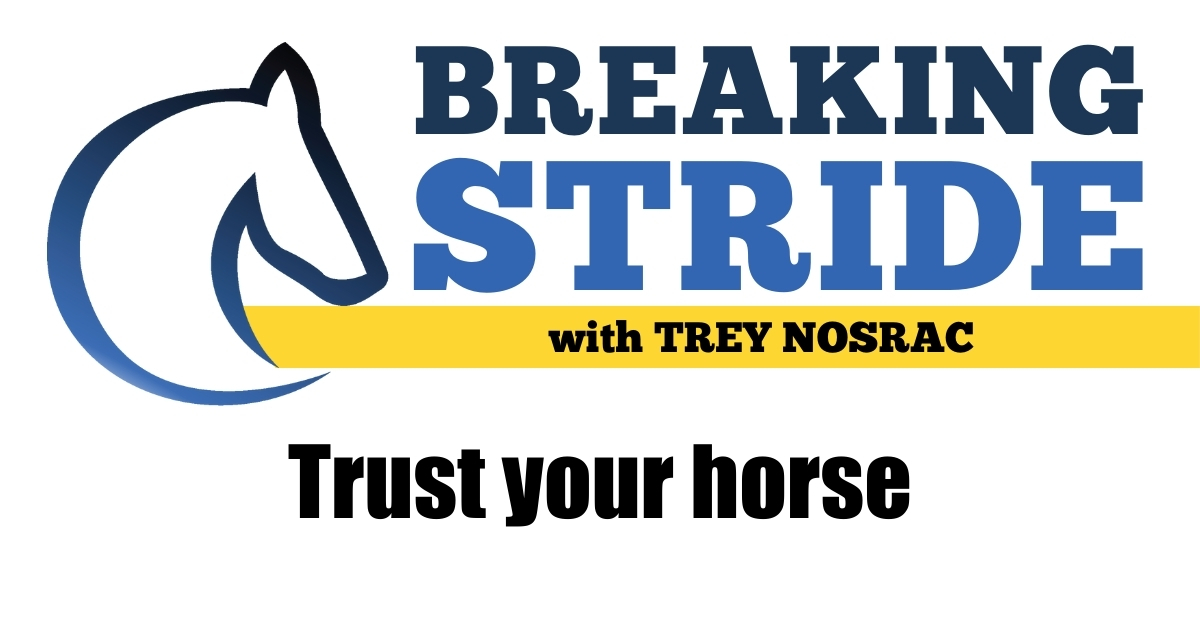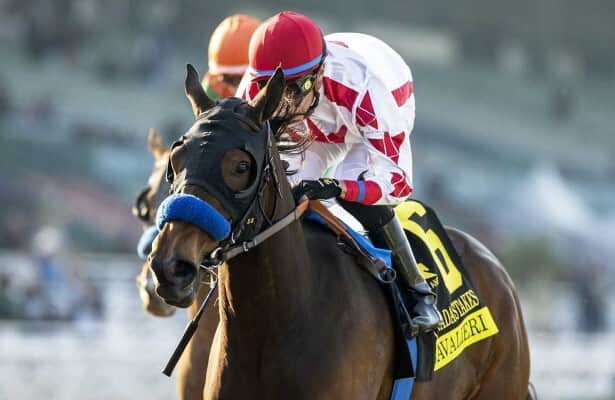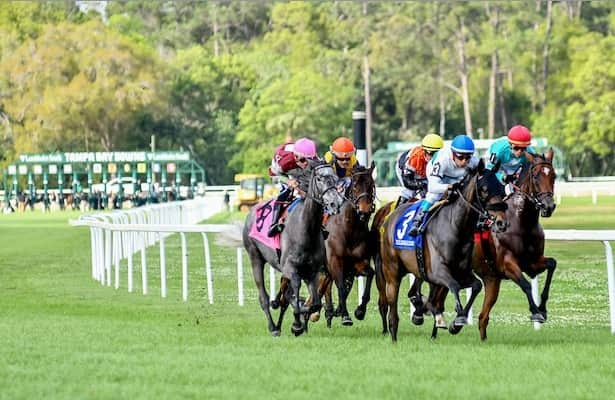Trust your horse

by Trey Nosrac
“Until one has loved an animal, a part of one’s soul remains unawakened.” Anatole France
HRU recently published five chapters that told the tale of a crotchety old bachelor who developed an emotional attachment to a pair of unraced harness horses. The primary theme was a lonely veteran farmer, a man familiar with commercial livestock, who allowed a pair of discarded harness horses to become pets. At this stage of his life, the connection between this human and his equine pals provided a sense of companionship and emotional support.
The depth of love people develop for their animals is unsurprising to some of us. We understand the intelligence and sensitivity of horses can lead to deep bonds just as it does for dogs and cats. Horses recognize their owners, respond to their voices, and show affection, such as nuzzling or following them around. Owners and horses can find mutual trust and affection.
The fictional story also touches on a complex philosophical question concerning the difference between a commercial pig and your pet dog. Humans assign different statuses to different species due to cultural and moral frameworks. We adore our puppies and pets profoundly and give scant thought to the millions of piglets.
What status would you assign to the horses in our sport? Buyers purchase yearling for commercial purposes, not for pets. Buyers are not spending a hundred thousand dollars on a pet. Turning the page on an unproductive racehorse is part of the business. Owners and trainers eventually compartmentalize their feelings for their horses. They must, or they will soon have hundreds of expensive pets. Racehorses arrive and depart every year, sometimes monthly, making it difficult to track the future of every horse. The movement of horses is not cruelty, merely business. On the other hand, when funding and space are available, racehorses can transition to pets, possibly even productive pets.
The story Abandoned Horses focused on a specific problem with beloved pets – what happens to animals when they outlive their owner? Writing a story and creating a scenario with a happy ending is easy. In real life, the aftercare of pets is more complex, especially when the animals weigh a thousand pounds. As with most topics, there are many layers to animal aftercare for pets, ranging from simple to complicated and expensive.
For most of us with a beloved pet that we may not be able to care for, our first course would probably be to ask a trusted friend or a relative, “Take care of Smokey for me.” This request is understandable for an elderly cat but not as doable if Smokey is a young horse. A casual conversation is a starting point, but specific instructions from the owner are helpful.
Owners can leave instructions and money for the care of their animals in a will. Animals are property, which makes a will possible for animal aftercare. However, time is involved in settling estates, and enforcement is problematic. For example, a paragraph may state, “To my brother Ralph, I leave the care of my beloved horse, Smokey, and $25,000 for expenses.” A simple will may or may not work out as planned. Ralph could take the horse to a slaughterhouse and spend the money on a Tahitian cruise.
The safest, but costliest, method to ensure Smokey’s fate in case one becomes incapacitated is to establish a trust. Every state has a statute permitting pet trusts, which are detailed legal documents indicating care for animals and expected expenses. The difference between a will and a trust is that a trust has enforceability and includes several parties. The grantor establishes the trust and pays the money. The caretaker manages the money. An enforcer will faithfully follow the terms of the trust.
We will always have a surplus of racehorses needing homes. Many rescue organizations follow the concept of repurposing our harness horses for other equine disciplines. Repurposing and retirement homes for horses are excellent and worthy of support. Finding additional ways to lengthen the happily ever after for our horses is challenging. Subsequent columns in this space will look at a few unorthodox ideas for placing that harness racehorse you can’t seem to say goodbye to.
“Animals are reliable, often full of love, true in their affections, predictable in their actions, grateful and loyal – A difficult standard for people to live up to.” Alfred Monapert
Related
Leading Parx jockey Sanchez will serve 7-day suspension
Photo: Jason Moran / Eclipse Sportswire Jockey Mychel Sanchez will serve a seven-day suspension and pay an additional $1,750 in fines
Bill Mott talks about plans for Sovereignty, Just F Y…
Photo: Gulfstream Park / Lauren King Sovereignty, dramatic late-running winner of the Fountain of Youth (G2) March 1, is being pointed
Up-and-coming Cavalieri chases Grade 1 glory in Beholder Mile
Photo: Santa Anita / Benoit Photo Cavalieri and Alpha Bella, who finished one-two in the Grade 3 La Cañada in January at Santa Anita,
4 stakes showcase shipping stars on Tampa Bay undercard
Photo: Gonzalo Anteliz Jr. / Eclipse Sportswire The stars will shine Saturday at Tampa Bay Downs, and not just in the Grade 3 Tampa Ba











